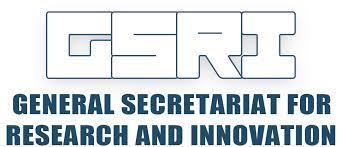Panagiota Petrou obtained her B.Sc. and Ph.D. in Chemistry both from the University of Athens in 1993 and 2000, respectively. From 2000 to 2001 she was a Post-doctoral fellow in the Institute of Microsystems Technology of Albert-Ludwig University at Freiburg, where she worked on the development of microsystems embodying electrochemical enzyme sensors for continuous analyte monitoring. At the end of 2002, she joined the Institute of Radioisotopes and Radiodiagnostic Products, NCSR “Demokritos” (currently Institute of Nuclear & Radiological Science & Technology, Energy & Safety – INRASTES), where she holds a Director of Research position since 2014 on development of nano/microsystems for bioanalytical applications. Her research activities include the design and development of: a) optical sensors and their application in healthcare, environmental monitoring and food safety sectors, b) advanced bioanalytical microsystems based on optical or electrochemical sensors able for multi-analyte determinations, c) protein and DNA arrays, d) methods for surface chemical modification and biofunctionalization, new solid supports for selective immobilization of proteins and/or cells. She has participated in several EU (BIOMIC/IST-2000-28214, MICROPROTEIN/G5RD-CT-202-00744, TASNANO/FP6-NMP-516865, NEMOSLAB/FP6-ICT-2006-027804, PYTHIA/FP7-ICT-2007-2-224030, FOODSNIFFER/FP7-ICT-2011-8-318319, FOODSCAN FP7-SME/286442) and GSRT funded projects related mainly to the development of microsystems for the simultaneous determination of clinical, environmental or food-safety related analytes based on optical biosensors. She is the author/co-author of 120 papers published in international peer-reviewed journals and of more than 200 conference communications. She holds 25 Greek and international patents.

The project aims at the development of optical biosensors for the immunochemical detection of cancer markers and markers of oxidative stress both proteins and low molecular weight analytes. The detection is based on Raman spectroscopy and photoluminescence (PL). For the enhancement of the detection ...

Principle Investigator (NCSRD): Dr. D. Mastellos Project DIAMOND addresses the challenges of rapid diagnosis of microbial infections by means of DNA analysis and antibiotic administration only if considered necessary. This will be achieved with the development of a prototype, aut...

Participating Young Investigators: Dr. Chrysoula-Evangelia Karachaliou & Dr. George Koukouvinos Academic Advisor: Dr. Evangelia Livaniou Vice Academic Advisor: Dr. Sotirios Kakabakos Budget: 50,050 euros One of the m...

Principle Investigator (NCSRD): Dr. Evangelia Livaniou Researchers Participating (NCSRD): Dr. S. Kakabakos, Dr. D. Mastellos, Dr. P. Petrou, Dr. I. Pirmettis Budget (NCSRD): 237,181.25 euros The European farming community is under a number ...

During the last decades, the progress of miniaturized smart systems has largely expanded the field of diagnostics and has enabled the medical community to offer to patients worldwide better, faster and more accurate health services. Amongst the various principles of operations that have been introdu...
